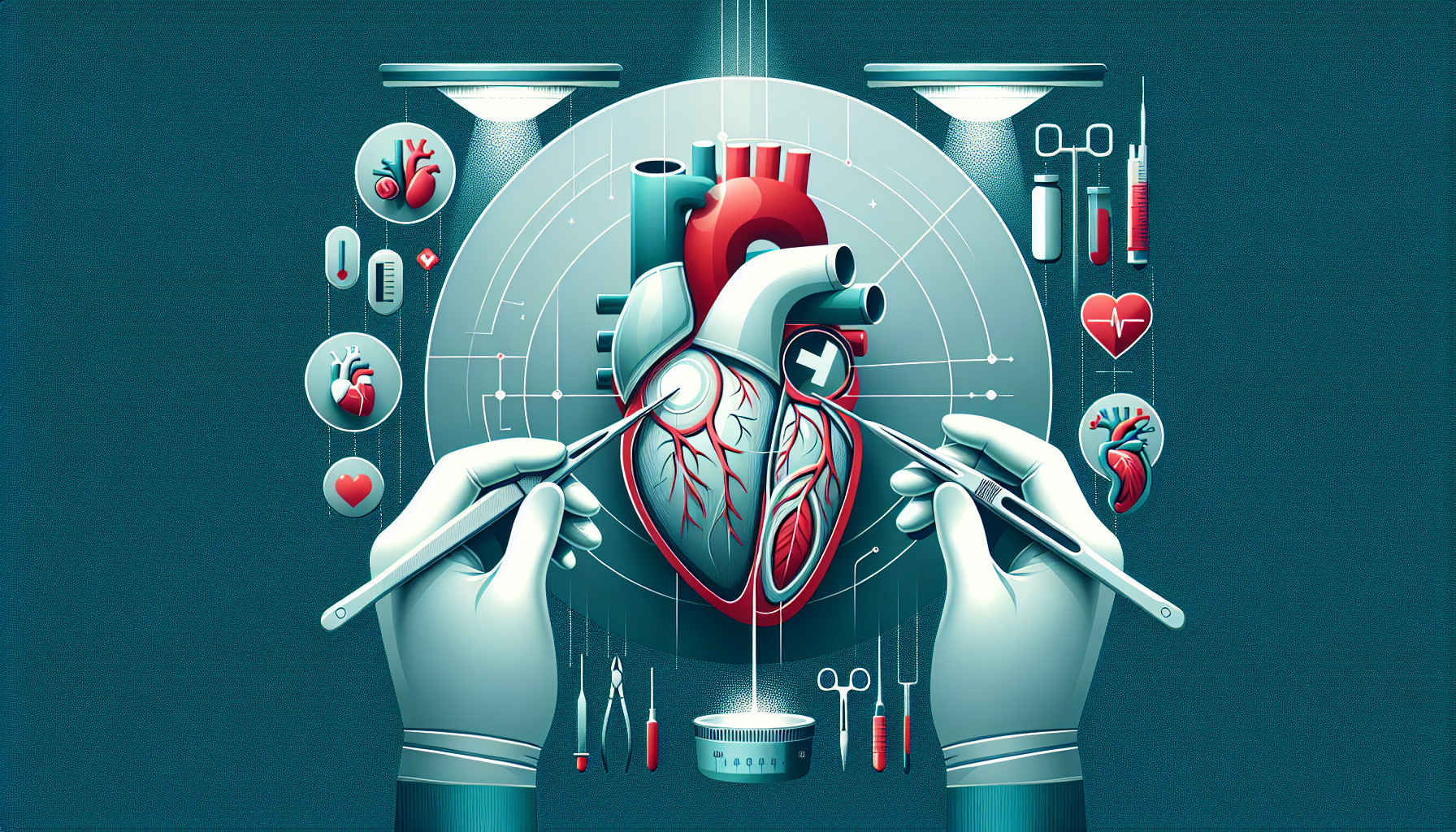Our Summary
This research paper discusses the problems that can arise after surgery to repair or replace the mitral valve in the heart. Re-operating on these valves can be risky. However, recent improvements in surgical techniques have made it possible to implant new valves using a balloon-like device. This can be done when there are already surgical rings or valves in place. The new valves can be inserted through one of two methods, either via the septum (a wall dividing two cavities in the heart) or the apex of the heart. The reported success rate for these types of implantations is quite high, ranging from 88 to 100 percent.
FAQs
- What is the success rate of implanting balloon-expandable valves in the mitral position?
- What are the recent advances in transcatheter techniques and surgery for valve replacement?
- What is the difference between transseptal and transapical access in valve implantation?
Doctor’s Tip
Tip: It is important to follow your doctor’s recommendations for post-surgical care and attend all follow-up appointments to monitor the function of your new valve. Make sure to inform your healthcare provider of any new symptoms or changes in your condition. Additionally, maintaining a healthy lifestyle, including regular exercise and a balanced diet, can help support the long-term success of your valve replacement.
Suitable For
Patients who are typically recommended valve replacement include those with severe mitral regurgitation or stenosis, as well as those who have experienced post-surgical deterioration of previous mitral valve repairs or replacements. These patients may be high-risk for repeat surgery and may benefit from transcatheter techniques or surgical implantation of balloon-expandable valves in the mitral position. The success rate of these procedures is high, making them a viable option for patients who require valve replacement.
Timeline
Before valve replacement:
- Patient experiences symptoms such as shortness of breath, fatigue, chest pain, and palpitations due to a dysfunctional heart valve.
- Patient undergoes diagnostic tests such as echocardiogram, cardiac catheterization, and MRI to assess the severity of the valve disease.
- Patient consults with a cardiac surgeon and cardiologist to discuss treatment options, including valve repair or replacement.
- Patient undergoes pre-operative evaluation and preparation for valve replacement surgery, which may include blood tests, imaging studies, and medication adjustments.
After valve replacement:
- Patient undergoes valve replacement surgery, which may be performed via open-heart surgery or minimally invasive techniques.
- Patient is monitored closely in the intensive care unit for the immediate post-operative period to ensure stable vital signs and proper healing.
- Patient is transferred to a regular hospital room for continued monitoring and rehabilitation, including physical therapy and respiratory therapy.
- Patient is discharged from the hospital once stable and able to care for themselves at home.
- Patient attends follow-up appointments with their healthcare team to monitor their recovery and adjust medications as needed.
- Patient undergoes cardiac rehabilitation to improve their cardiovascular health and overall well-being.
What to Ask Your Doctor
- What are the risks and benefits of valve replacement surgery?
- What type of valve replacement is recommended for my specific condition?
- What is the success rate of the procedure?
- What is the expected recovery time and rehabilitation process?
- How long will the new valve last and will I need any additional procedures in the future?
- What are the potential complications or side effects of the valve replacement surgery?
- Will I need to take any medication or make lifestyle changes after the surgery?
- How often will I need follow-up appointments to monitor the new valve?
- What are the signs and symptoms of potential problems with the new valve that I should watch out for?
- Are there any alternative treatments or procedures that I should consider before deciding on valve replacement surgery?
Reference
Authors: Eng MH, Wang DD. Journal: Interv Cardiol. 2018 May;13(2):77-80. doi: 10.15420/icr.2017:16:3. PMID: 29928312
